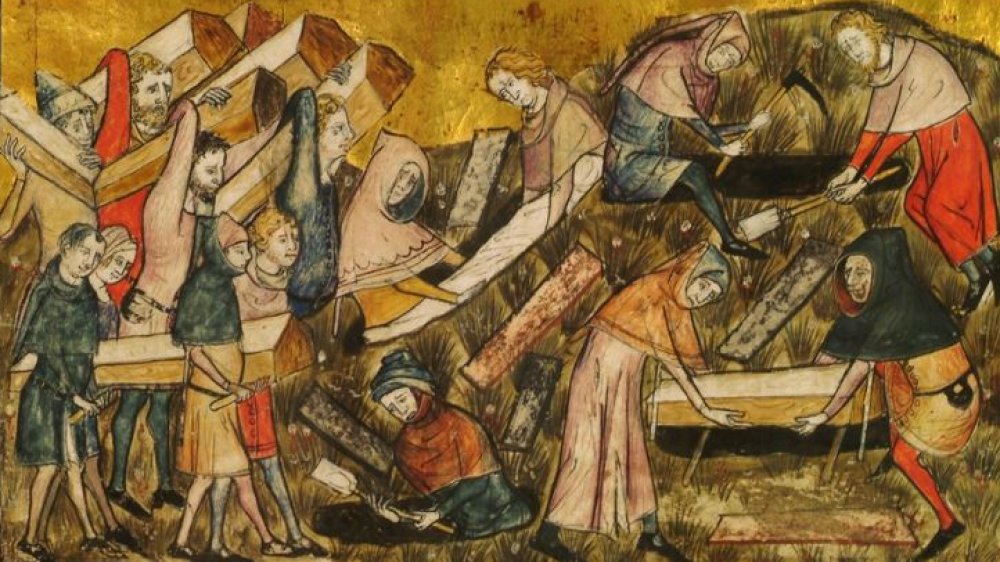The Real Reason Kissing Was Once Banned In Medieval England
Fleas and kissing. The two might seem unrelated, but in an era of social distancing, the link between might be clearer.
Long before COVID-19, the flu of 1918, and even the mysterious "sweating disease" of late 15th century England, Henry VI led England during the most pernicious disease in recorded human history: the Black Death, otherwise known as the "bubonic plague," because it causes lymph nodes to swell into painful lumps called bubos. According to History Today, between 1346 and 1353, the Black Death wiped out over 60% of Europe's population, estimated at near 50 million.
The cause? Plague. Specifically, bacteria. Even more specifically, Yersinia pestis, as stated on Britannica. It seems that the Black Death is the ancestor of all modern versions of the same bacteria that cause such contagion in modern humans. Fantastic. The Black Death spread through rats ... or, more precisely, the fleas that leapt between those rats, and then eventually to people, on ships, in homes, nestled in clothing, ready to bite and jump onward and resume their pestilent wave. Records indicate that the disease took root in the port of Genoese (modern day Crimea) when Mongolian ruler Jani Beg launched disease-ridden corpses from catapults in order to deliberately infect the city's inhabitants, when on a conquering spree. The plague made its way to London in 1349, all the way up to Scotland and through Scandinavia, and down through the entirety of Europe. It resurfaced, in wave after wave, through the early 1400s.
The first state-sponsored PDA ban
King Henry VI was born in 1421, nearly 75 years after the Black Death first showed up on English soil, but the responsibility of responding to this never-ending disease fell on him. The first official quarantine likely occurred in 1377, so even though people lacked modern scientific awareness and disease-treatment methods, enough had gotten infected that clear patterns had emerged.
The most obvious of these: Keep distance from the sick. At that time, in England, kissing was a common method of greeting (much like Italy, Spain, or France nowadays). Even though there was no way to universally enforce people to not only maintain distance, but not kiss, Henry VI still made such a rule on July 16th, 1439, according to History and Headlines.
There's no way to know exactly who obeyed (or did not obey) the decree. After all, Henry VI was only 17 at the time. At the very least, though, Parliament played by the rules. By that year, the Black Death had caused the governmental body to stay out of session for nearly a year and a half, but they were forced to convene because of military conflict with France, according to History Daily, and to keep things safe, they politely declined to ceremoniously kiss the king's ring before starting their session. Henry VI was notoriously prudish, and this may have contributed to his making such a decree to begin with, and in the process, may have helped save a number of lives.

